2024-11-16
The "WTA·Xianghu Dialogue 2024" was recently held in Sanya, Hainan, where global tourism leaders gathered to share insights on the topic "Are We Ready for an Open and Inclusive Tourism for Asia Pacific?".
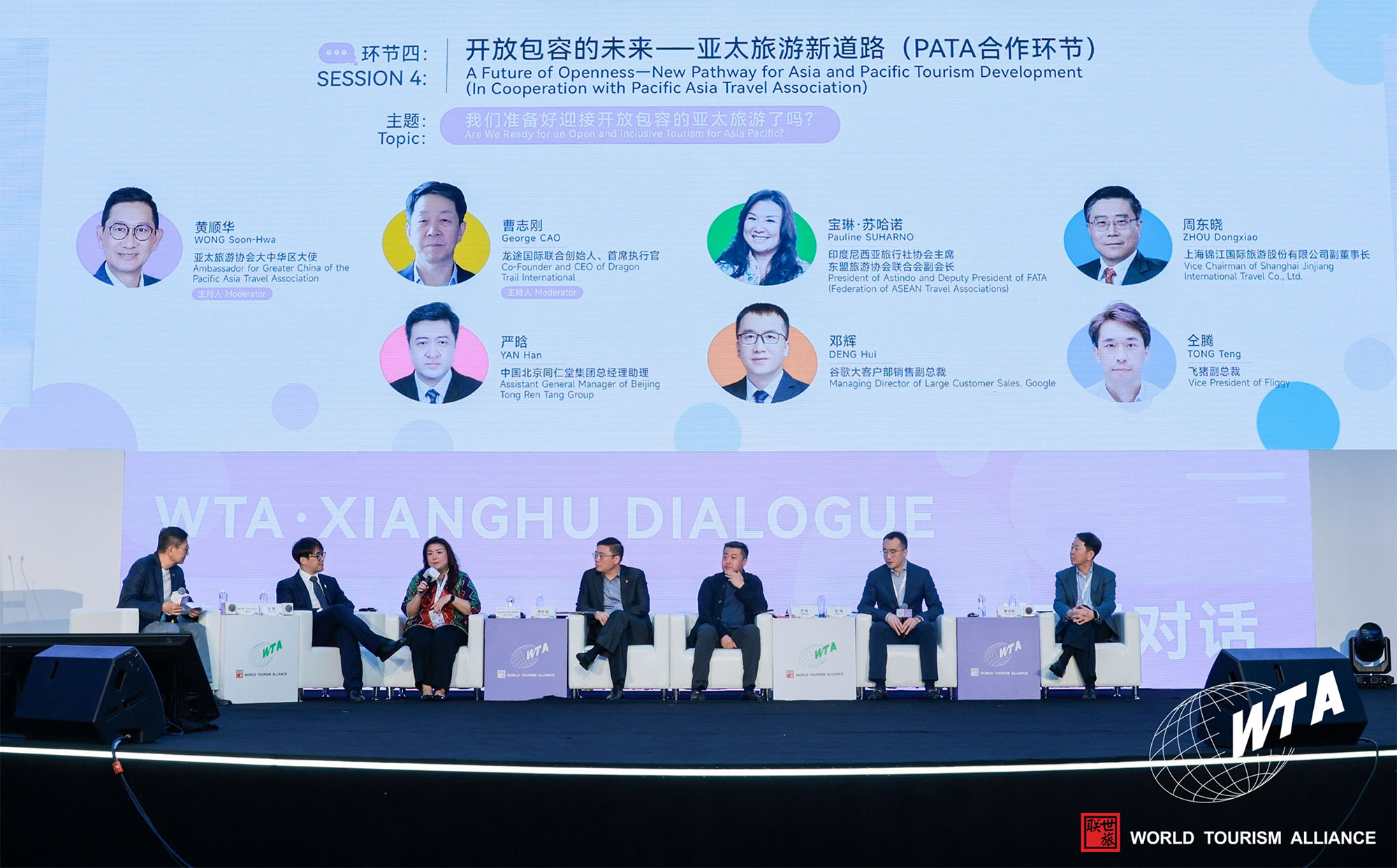
Moderator:
Mr. WONG Soon-Hwa, Ambassador for Greater China of the Pacific Asia Travel Association
Mr. George CAO, Co-Founder and CEO of Dragon Trail International
Panelists:
Ms. Pauline SUHARNO, President of Astindo and Deputy President of FATA (Federation of ASEAN Travel Associations)
Mr. ZHOU Dongxiao, Vice Chairman of Shanghai Jinjiang lnternational Travel Co., Ltd.
Mr. YAN Han, Assistant General Manager of Beijing Tong Ren Tang Group
Mr. DENG Hui, Managing Director of Large Customer Sales, Google
Mr. TONG Teng, Vice President of Fliggy
Here is a transcript of the discussion:
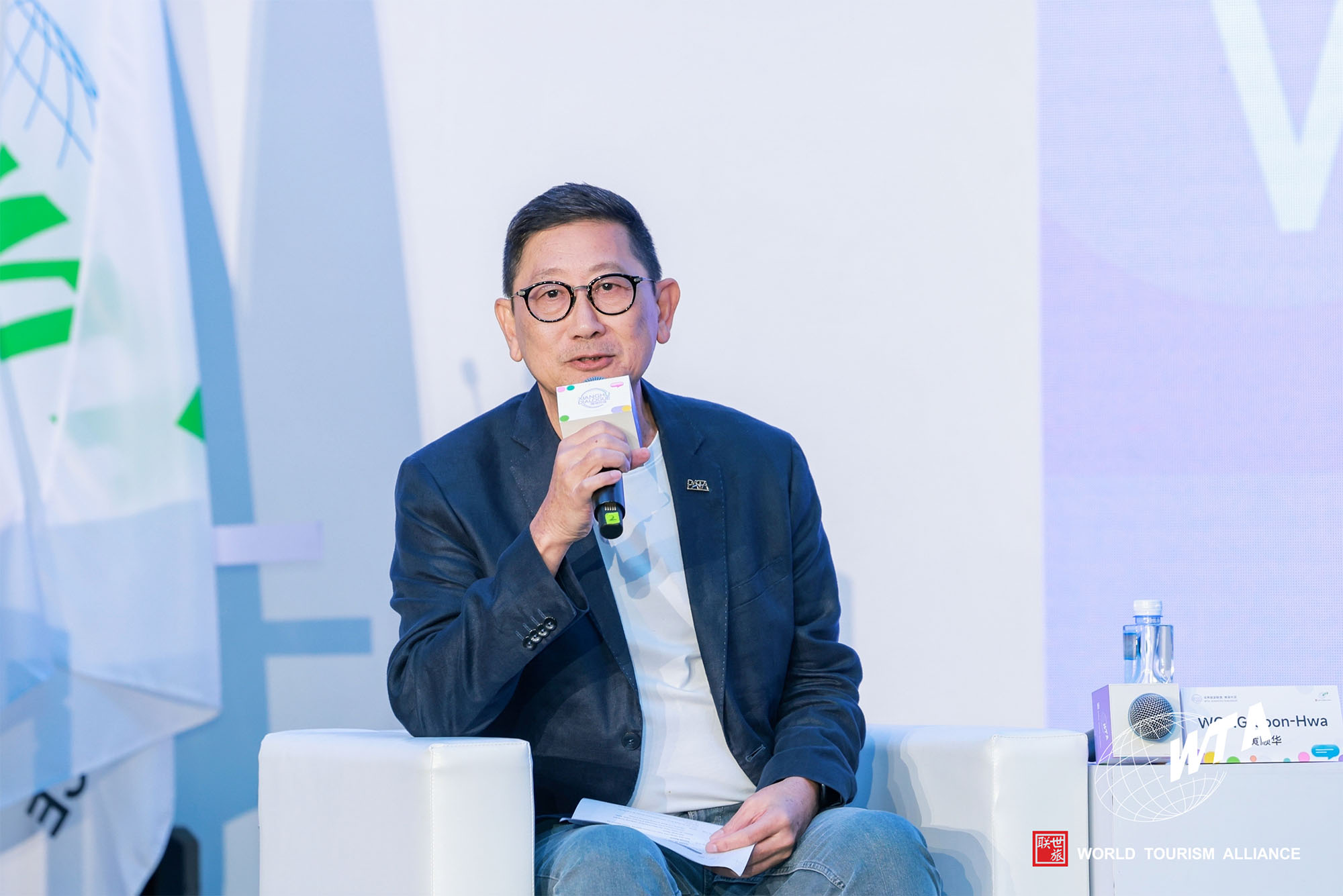
Moderator (Mr. WONG Soon-Hwa): We are committed to fostering a more open and inclusive tourism industry. How should we define an open and inclusive tourism industry?
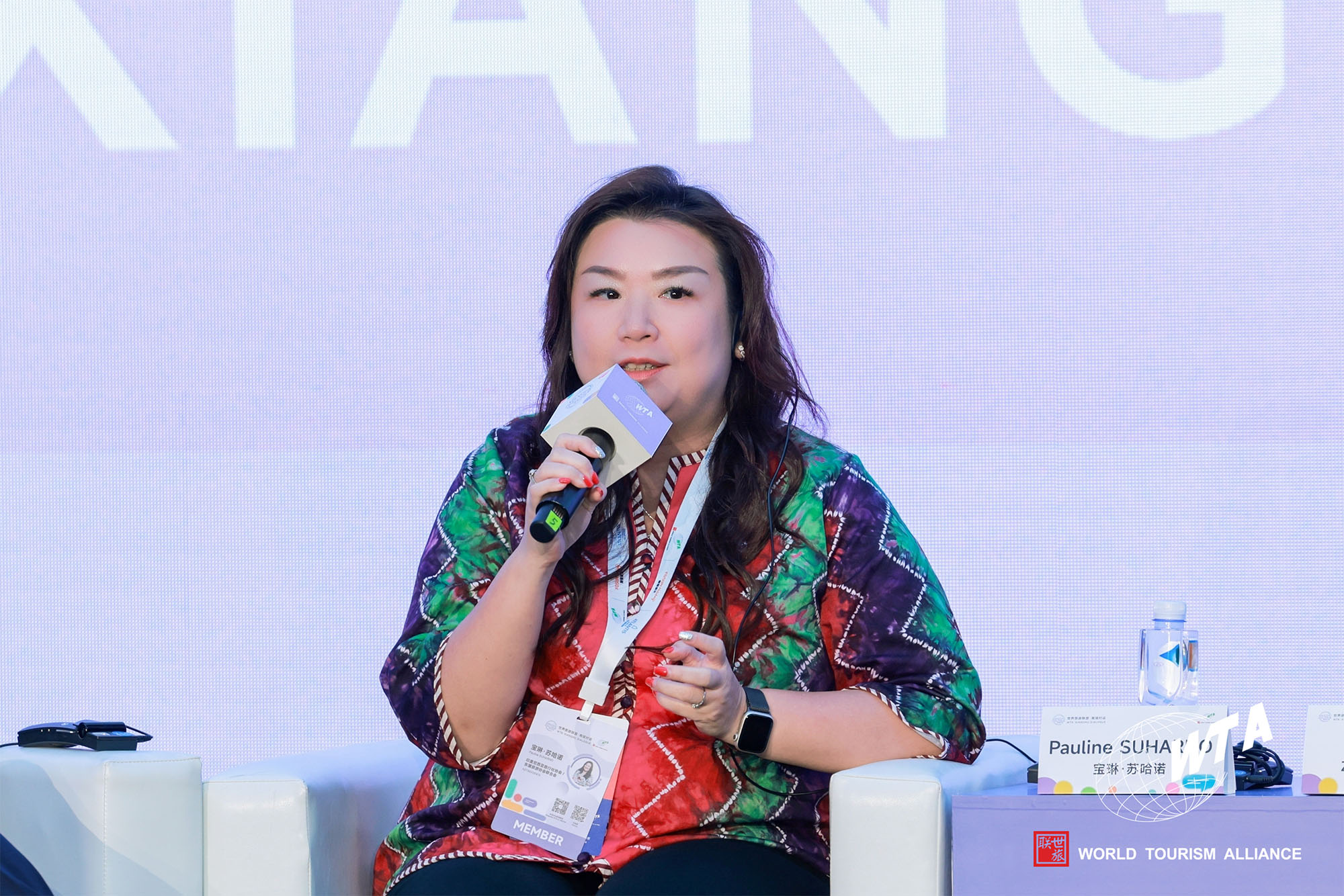
Ms. Pauline SUHARNO: Openness and inclusivity reflect an attitude of acceptance and receptiveness. In the global family, tourism touches everyone, regardless of age, culture, religion, or gender. Currently, tourism in the ASEAN region is growing rapidly. Singapore, as one of ASEAN’s key nations, exemplifies this growth with its well-developed infrastructure and seamless transportation, which offers great convenience to visitors. Singapore is a highly inclusive destination, where data and information are openly accessible, enabling the public to effortlessly obtain tourism-related insights. Nowadays, visitors to Singapore are no longer reliant on traditional travel agency services. Other countries are learning from Singapore’s model, though to varying degrees, as they strive to enhance their own tourism infrastructure and services.
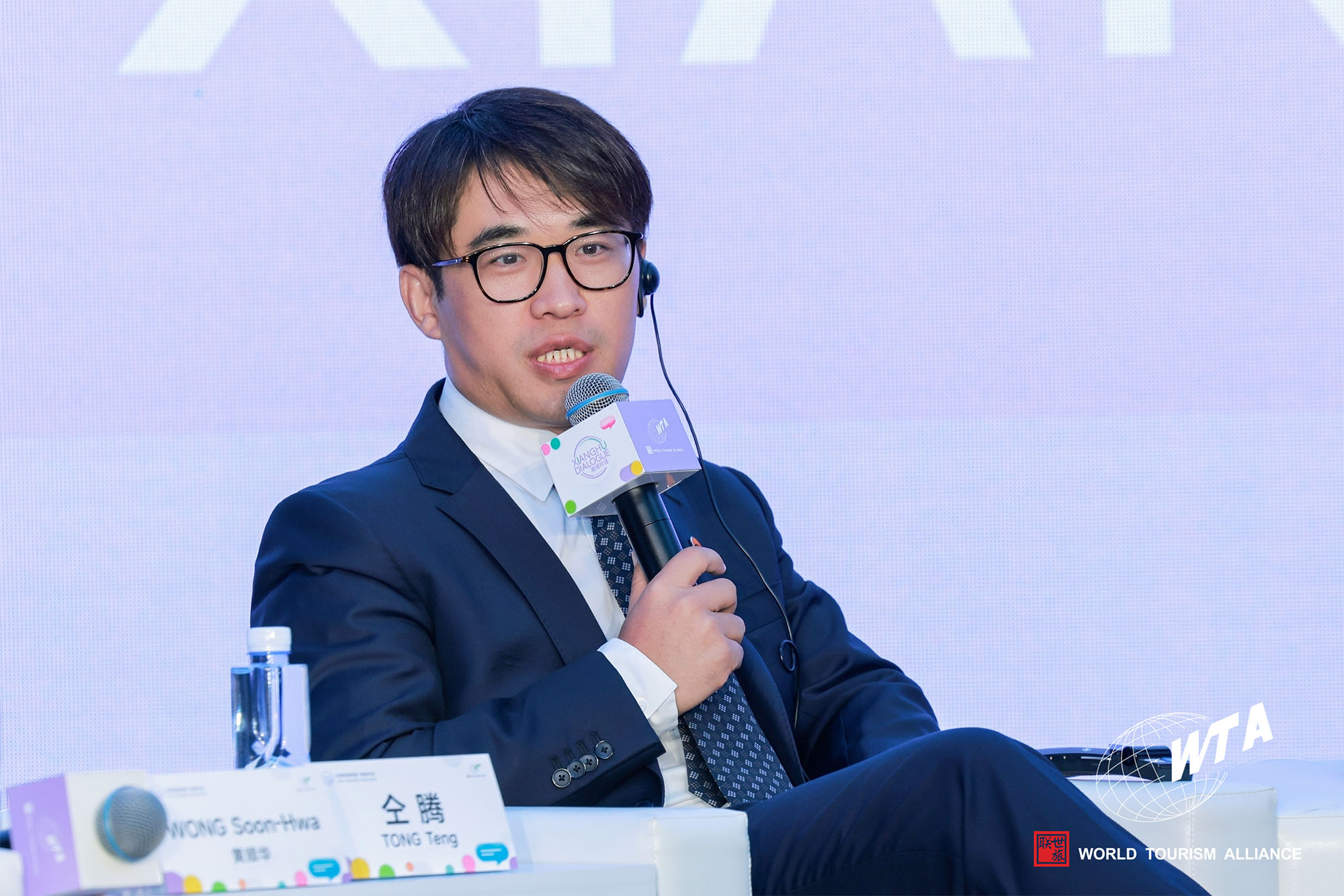
Mr. TONG Teng: There’s an old Chinese saying: "Harmony in diversity leads to shared beauty". This means that every country’s culture has its unique charm, and mutual appreciation fosters cooperation, which is the essence of tourism. Currently, Chinese tourists are returning to major destinations across the Asia-Pacific at an accelerating pace, a testament to the collective efforts of all stakeholders. However, challenges remain, particularly in balancing openness with inclusivity. As the tourism market matures, consumer demands are becoming more segmented and diverse, with clear and specific expectations for destinations. For instance, Thailand is actively attracting Chinese visitors for medical and cosmetic tourism, while Hainan focuses on health and education-related industries. Moving forward, we must continue improving tourism infrastructure, visa policies, and airline services to support the sustainable and healthy development of the industry.
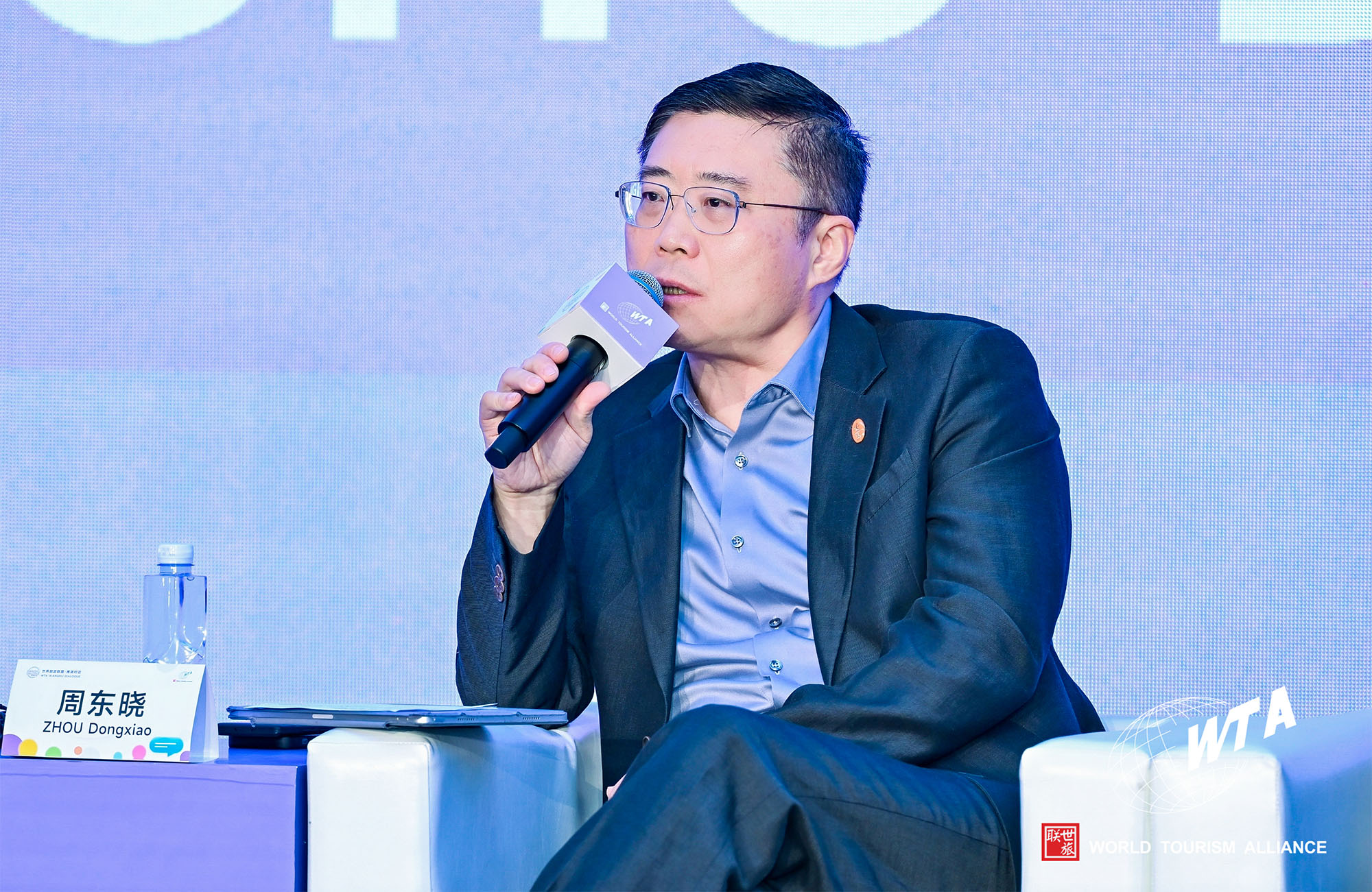
Mr. ZHOU Dongxiao: Diversity encompasses various destinations and travel styles, highlighting the richness of multiculturalism and different civilizations. Tourism offers us the opportunity to deeply understand others, while also allowing others to learn about us. To promote a more open and inclusive tourism market and to better meet people’s travel needs, we must consider tourist needs, industry practices, and platform tools. This requires action in four key areas: 1. Personalized Services: Meeting unique preferences is essential. 2. Innovation in Tourism Products: Integrating local culture is critical for content creation. 3. Content Focus: We often say “content is king”, but the industry still hasn’t fully acknowledged just how crucial it is. 4. Adapting to New Technologies: Artificial intelligence will likely disrupt traditional models, workflows, and product innovation paths. We need to reflect on its impact and adapt to emerging trends.
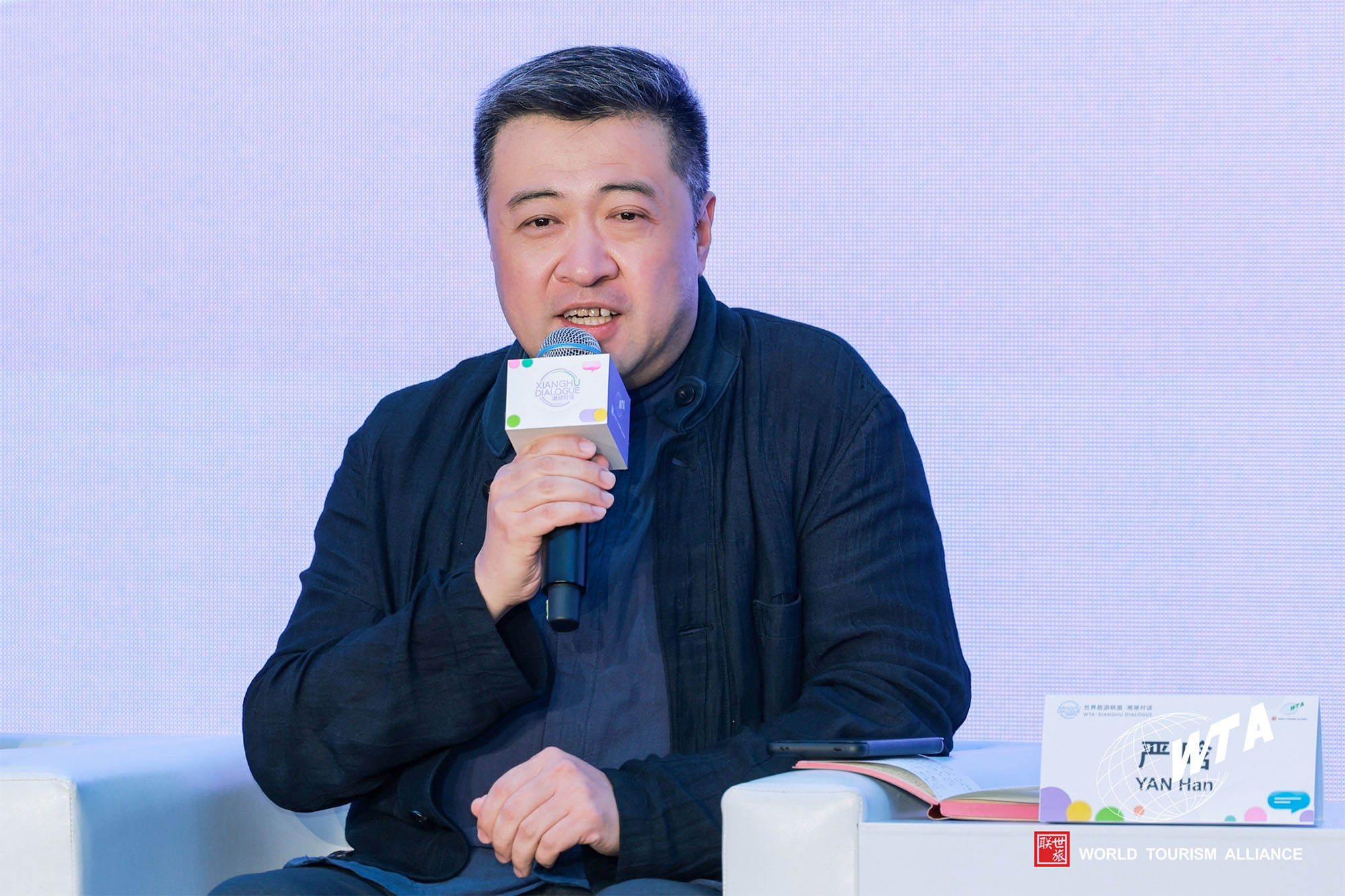
Mr. YAN Han: Tourism, as an open and inclusive industry, provides numerous platforms for collaboration and exchange. Openness and inclusion symbolize the expansion of our horizons and the joint creation of ambitious plans. Tourism is inherently inclusive, and we expect even greater achievements in its openness and inclusivity for three reasons: 1. Strong cultural identity – Tourism fosters a deep connection with culture. In the Asia-Pacific region, civilizations with long histories, such as the cultural systems of the Yangtze and Yellow River basins in China, provide a strong foundation for cultural recognition. 2. Blurring of industry boundaries – Tourism’s boundaries are relatively fluid, acting as a thread that strings together “pearls” from various sectors. 3. Mutual benefit and collaboration – Tourism requires cooperation among diverse stakeholders, and cooperation must maximize the interests of all involved parties.
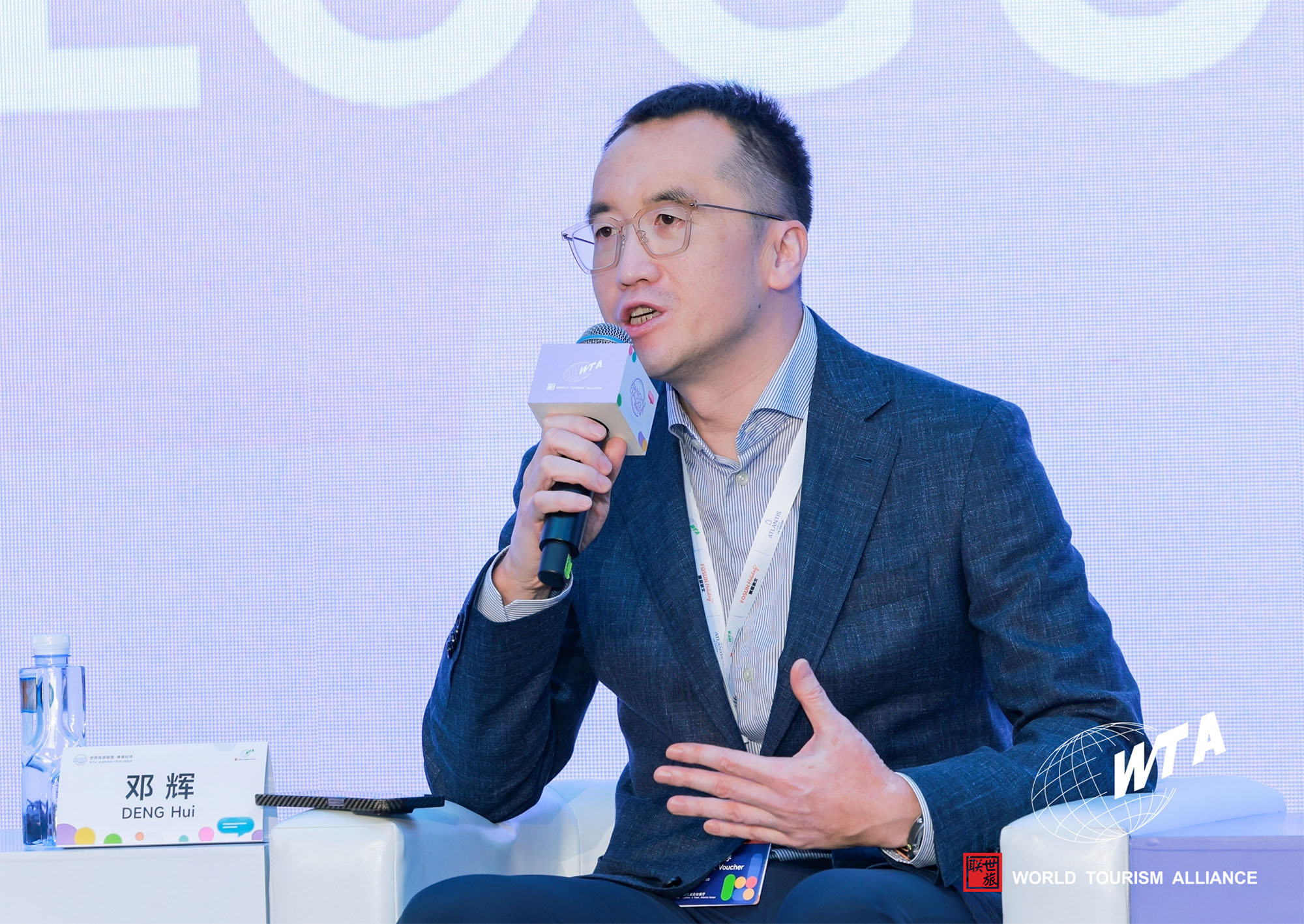
Mr. DENG Hui: Openness and inclusion entail easy access to information, significantly simplified by internet technologies. This aligns with Google’s mission to “organize the world’s information and make it universally accessible and useful”. Google’s travel search and maps are specifically designed to facilitate easy access to necessary information, thus enhancing travel experiences. According to Google’s data analysis, the Asia-Pacific region is recovering its tourism sector at the fastest pace globally. Among the top 10 countries with the highest growth in international tourism search volume, nine are in the Asia-Pacific. Search volume for inbound tourism in China has tripled over the past two years. With more countries in the region adopting more open policies and collaborative efforts from industry associations, OTAs, and hotels, the recovery and prosperity of Asia-Pacific tourism are becoming a reality.
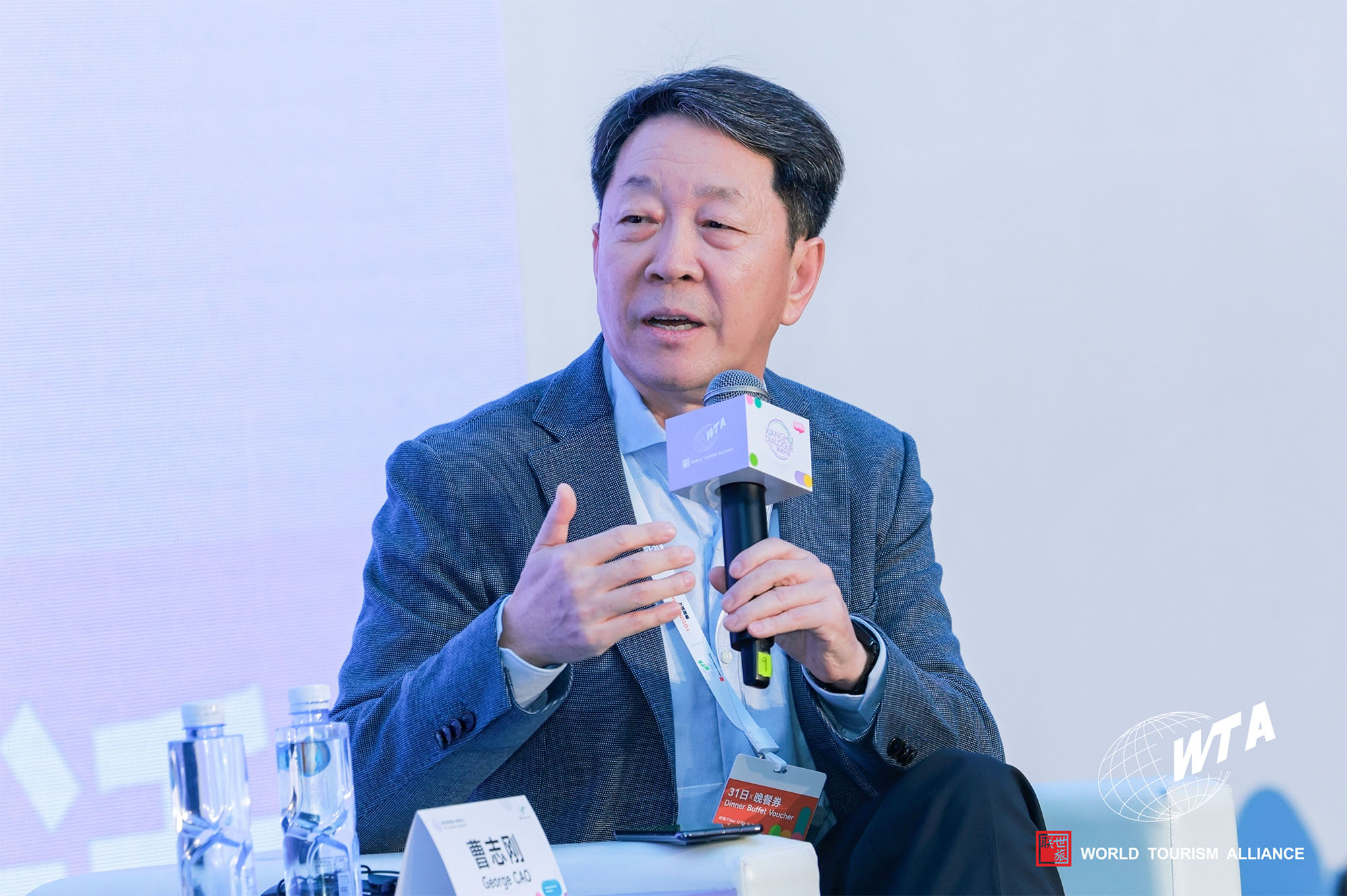
Moderator (Mr. George CAO): Tourism is a service that embodies inclusivity. However, many travelers are unable to fully enjoy the experience due to factors like age, health, or physical ability. How can we leverage technology to make tourism more inclusive?
Mr. DENG Hui: Tourism is an experience, a culture, and a form of human interaction. I believe that technological advancements will continue to enhance tourism experiences. In the past, international travelers relied heavily on manual translation or basic translation software. Today, real-time translation through mobile apps has effectively eliminated language barriers. Additionally, not all travelers can visit every destination in person. To address this, Google collaborates with museums to present collections online using high-definition 3D scanning. For example, through our partnership with the Palace Museum in Beijing, users can explore artifacts in stunning detail. Similarly, Google Maps has introduced 3D immersive experiences in San Francisco, allowing users to virtually explore the city streets. When it comes to searching for information, Google leverages AI to provide comprehensive travel insights. For example, if a traveler is planning a cultural tour of New York, Google can recommend tailored cultural projects and attractions, helping them efficiently plan their itinerary.
Mr. TONG Teng: As a travel service platform under Alibaba, Fliggy is committed to leveraging technology to enhance user experiences. Since last year, we have invested heavily in developing a cultural tourism large language model. Recently, we partnered with Beijing’s Chaoyang District to launch the “AI Tour of Beijing Chaoyang” cultural tourism model, which uses AI technology to provide personalized travel recommendations. Modern travelers demand more than standardized products; their needs reflect diverse cultural backgrounds and personal preferences. To meet these demands, we consider factors such as travel timing, choice of activities, duration of stay, preference for indoor or outdoor activities, and weather conditions to customize travel plans. Through our cultural tourism model, we aim to provide every traveler with a personalized travel consultant experience. For international visitors to China, who may face challenges like language barriers or difficulties booking taxis, restaurants, or hotels, we plan to integrate related services into a single platform. By collaborating with relevant apps, we aim to offer a one-stop solution. In the future, our big data model will support multiple languages, greatly reducing communication barriers for travelers worldwide.
Mr. YAN Han: Recently, Beijing Tong Ren Tang Group has accelerated its collaboration with tourism associations and promotional agencies to transform traditional Chinese medicine (TCM) wellness experiences into efficient tourism products. A high-quality tourism experience should relax the body and mind, allow deep engagement with local life, and exceed tourists’ expectations. Outbound and inbound tourists often have differing needs, requiring diverse and professional products to meet their demands. Unfortunately, stakeholders outside the tourism industry often lack a deep understanding of tourism. We hope to see more creativity and meaning integrated into product designs, sparking greater interest among travelers and enriching their experiences.
Mr. ZHOU Dongxiao: In tourism, whether welcoming inbound tourists or organizing outbound travel, the key to competitiveness, product value, and cultural integration lies in people. Tourism professionals are not just cultural messengers but also innovators driving cultural progress. Today, enhancing international perspectives and communication skills among tourism professionals is more critical than ever. It is essential to approach from this perspective in strategic product development and itinerary design, supported by adequate training opportunities for staff. For example, Jin Jiang Travel and Shanghai CITS excelled in inbound tourism due to their preference for hiring multilingual guides and tour leaders. Now, we understand that while language skills remain vital, what matters more is a deep understanding of culture, a comprehensive grasp of civilizations, and the ability to approach tourism activities from an international perspective.
Ms. Pauline SUHARNO: In modern society, people from all walks of life are passionate about travel. As such, it is our responsibility to ensure that all groups, especially vulnerable populations, receive the respect and accessibility they deserve. To better meet diverse client needs, we focus on identifying and developing unique attractions or facilities at tourist destinations that can attract visitors while catering to the needs of specific groups. Equal treatment during travel is essential. For instance, hearing-impaired travelers rely on accessible transport, clear signage, navigable layouts, and a conducive environment for a high-quality travel experience. Tourism professionals must undergo proper training to provide appropriate services to different groups. They should also advocate for sufficient facilities within their organizations to cater to all visitors. To achieve this, the tourism sector must strengthen collaboration with government and industry stakeholders.
Moderator (Mr. WONG Soon-Hwa): How can governments and enterprises strengthen collaboration to further promote openness and inclusiveness in the tourism industry?
Mr. YAN Han: Having experience in government, industry associations, and now the corporate sector, I’ve come to recognize that the relationship between governments and businesses is constantly evolving. Today, the focus for governments is less about the volume of work and more about its accuracy and precision. This is especially true for supporting private enterprises in their early stages, ensuring they receive adequate policy support, development opportunities, and assistance. However, to be honest, from the perspective of consensus, symbiosis, co-construction, and sharing, we still have room to strengthen and streamline the connections between governments and enterprises.
Mr. DENG Hui: Industry associations and tourism practitioners play a vital role in fostering dialogue and collaboration. As a corporate entity, we are committed to driving closer industry cooperation. Google serves billions of users every month. Through our search and maps services, we have built a platform that effectively connects user needs with the information provided by our partners. We have opened numerous interfaces, allowing partners—including online travel agencies, airlines, and hotels—to upload their data to our platform. This enables users to access essential information conveniently and select the best products with the highest cost-efficiency.
Moderator (Mr. WONG Soon-Hwa): Travel is commonly regarded as both a form of personal enjoyment and a fundamental right, enabling individuals to explore the world at their leisure. However, for frequent travelers, there is a risk of taking the travel experience for granted and losing appreciation for its true value. It is crucial, therefore, to implement measures that ensure tourism contributes to a more meaningful and sustainable experience, benefiting both tourists and the world they explore.